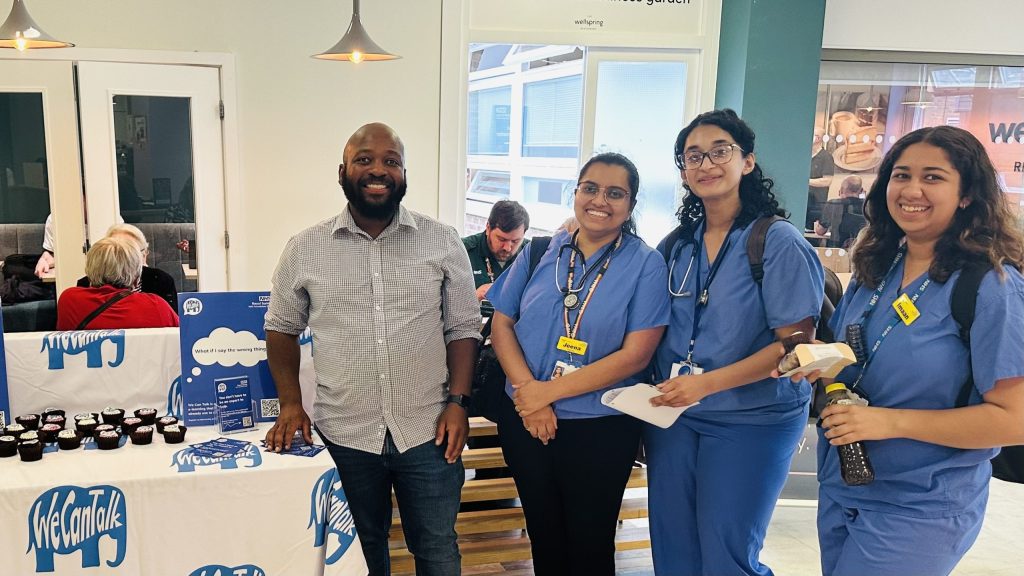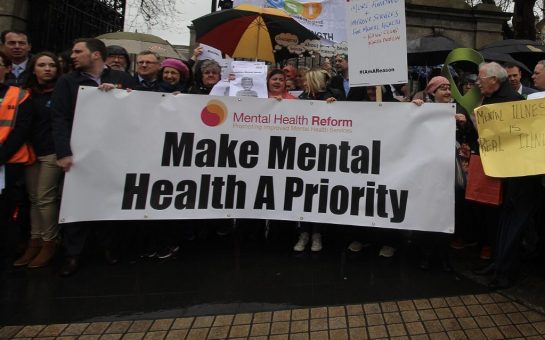With NHS mental health demand at record level, “We Can Talk” is transforming how hospital staff respond to mental health patients.

Credit: We Can Talk
New NHS England figures show more than 3.8 million people were in contact with NHS mental health services last year.
This represents a 40% increase from since before the pandemic with frontline staff going under growing strain.
Claire Murdoch, NHS England’s mental health director,said: “Demand for mental health services has been rising and figures released show how the NHS has been expanding services to treat record numbers of patients.”
A 2021 YouGov survey shows that 89% of NHS staff say it will take many years for them to recover from the pandemic’s impact, while 60% express concern over their colleagues’ mental health.
Robin Barker, founder and CEO of “We Can Talk”, spent a decade as a mental health nurse in acute hospitals, witnessing first-hand the emotional toll on his colleagues.
Barker said: “Trauma, grief and emotional exhaustion became everyday language.
“Hospital staff have always pushed through, but the sheer weight of the pandemic forced organisations to confront staff wellbeing in a way that hadn’t happened before.”
Hospital staff regularly support patients in crisis-yet many have little or no training in how to respond to mental health distress.
Barker said: “Every patient has emotional and mental health needs, but hospital staff often feel powerless because they haven’t been given the tools to help.
“I spent a decade watching colleagues say, ‘I want to help but I don’t know how’ and that is where We Can Talk began.”
Over the past eight years, “We Can Talk” has trained more than 35,000 NHS staff across more than 100 hospitals.
The training is delivered through a one-hour-video e-learning programme.
Designed with hospital staff in mind, the platform requires no downloads or apps, just access on any device whether at home or on the go.
Barker said: “We knew hospital staff didn’t want another app on their phone, so we made it as easy and accessible as possible.”
In a follow-up study of 120 NHS staff who completed the training, over 90% reported they were still using the skills six months later in their daily work.
Staff cited reduced use of security interventions, fewer patients leaving before mental health assessments and a notable drop in personal stress and sickness rates.
Now transitioning to an organisational model, “We Can Talk” is working with hospitals like Royal Surrey to embed its approach system-wide aiming for long term change.

Credit : We Can Talk
Anthony Gartland, Head of Nursing-Mental health at Royal Surrey NHS Foundation Trust said: “We’re excited to raise the profile of mental health support in our acute Trust by introducing this new offer to all staff – recognising that everyone plays a role in shaping the mental health culture of an organisation.”
Talking about the training provided, Dr.Vivian from Royal Surrey said: “As a doctor in a busy emergency department, I see mental health challenges daily.
“We can Talk’s e-learning ensures staff stay up to date and know how to respond because often it’s not about a cure, it’s about how we communicate.
“The training’s impact is even more powerful because it’s shaped by real patients who’ve been through the system, offering insight that truly deepens our understanding.”
“We Can Talk” aims to reach all one million-plus acute hospital staff across the NHS in England.
“Every hospital staff member deserves access to training that helps them to do their job and this is no longer optional,” says Barker.
The organisation is now calling on more trusts to join a movement and help embed a culture where compassionate, confident mental health support is standard practice.
Feature Image source: We Can Talk





